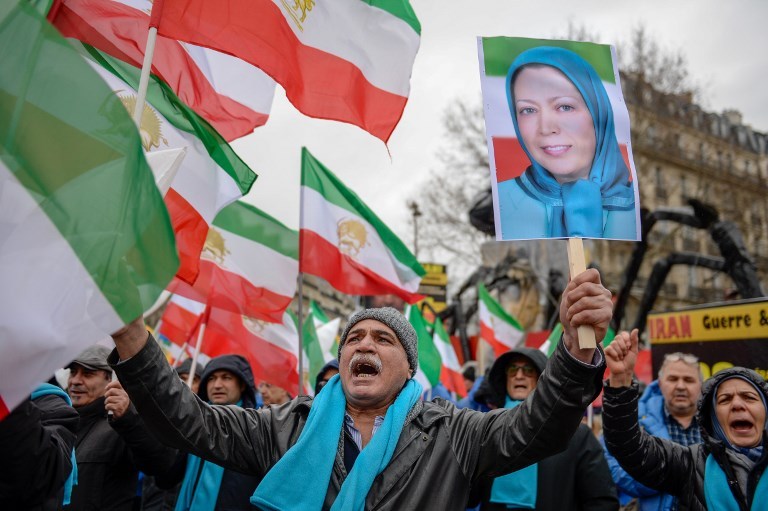In the last two years, tensions between Iran and the international community have significantly risen.
Mike Pompeo clearly stated in his last visit to Switzerland that the US are looking for a new round of negotiation with Iran without any preconditions. Ayatollah Ali Khamenei, the leader of the Islamic republic said that Donald Trump cannot fool the regime with such proposals.
In addition, Javad Zarif, the minister of foreign affairs of the Islamic Republic, conditioned any new round of negotiations with the lifting all sanctions, what he called the US economic war against the Islamic republic.
In his last statements about Iran, President Donald Trump said that he is not going to remove sanctions and that more are waiting in line. The relationship between the Islamic regime in Tehran and the US have never been like what we observe today.
The US was one of the first countries who recognised the Islamic revolution in 1979, following an appeasement policy that confronted Tehran’s misbehaviour, such as attacking the US embassy in Tehran and keeping US diplomats hostage for over a year.
However, both countries worked closely during US attacks on the Taliban in Afghanistan and Saddam al Hussein in Iraq. Such cooperation during the Obama administration reached its peak regarding the negotiations about the Iran nuclear program which ended with Iran nuclear deal.
Meanwhile, Europe also puts in a lot of effort to keep its financial relationships with the Islamic regime in Tehran, although it continuously expresses concerns about human right violations and freedom of speech in Iran.
Europe played an important role during the nuclear deal and they found it valuable to keep the business going on with Iran and avoid US sanctions as much as possible.
Withdrawing from the nuclear deal
However, when the new administration in the US decided to pull out of the nuclear deal for its concerns about Iran's missile program and the country's interference in the region, no one believed that after a year, the crises in the Middle East and its relationship with the US would reach such a peak in tensions as it has.
Donald Trump initiated a maximum pressure campaign on Iran to bring them back to the negotiation table. For this purpose, the US designated IRGC (revolutionary guard of Iran) as a terrorist entity. The US also put massive sanctions on the Iranian supreme leader, Ali Khamenei, and Iran’s minister of foreign affairs, Javad Zarif.
In response, Iran took down an unmanned US drone above the Hormoz strait and in the last few days, are thought to have targeted the Aramco oil field in Saudi Arabia with cruise missiles.
The new level of escalations demands a new approach by Europe. The EU must reconsider its policy toward Iran. Although the EU seems satisfied with the nuclear deal still they have a lot of concerns about Iran’s behaviour in the region.
Whether we like it or not, the Islamic regime in Tehran and its relationships with the international community is not a two-sided problem. The missed factor in most of the reports about Iran is the people of Iran and their resistance against the Islamic regime.
No one could imagine that the Trump administration can leave the Iran deal without threatening his relationships with his European allies. But, another massive uprising in late December 2017 changed the atmosphere in the Middle East.
The uprising in Iran, which lasted for two weeks and spread to more than 160 cities, according to the ministry of Intelligence of Iran, clarified that even with a nuclear deal, the Iranian regime does not have much approval inside the country.
Hassan Rohani, the President of the Islamic Republic declared that it was the 2017 uprising that made Donald Trump ready to leave the Iranian nuclear deal.
The Iranian regime is not just looking for a way to pave the ways for a new round of negotiation. In reality, Iran has another arm that is interested in terrorism and funding terrorist organisations.
Claude Moniquet, the co-founder and director of the European Strategic Intelligence and Security Center stated during a press conference about Iran’s terror threats in Europe: “terrorism when it comes to Iran is not an accident, it is a method”.
Just during the previous year, two foiled terror plots were reported. One foiled terror plot in Paris, where the NCRI, the main Iranian opposition organisation, held its yearly gathering, and the other one in Albania, the hosting country of the MEK, the largest Iranian opposition group and the axis party of NCRI.
The arrest of two spies in the US, expelling Iranian diplomats from France, Netherlands, and Denmark for their suspicious activities, and shutting the Iranian embassy down in Tirana for its threatening activities are other faces of Iran’s foreign policy which is not as smiling as what Zarif tries to show to media.
Usually, Iran uses its terror arm when the role of the people of Iran can no longer be ignored by the international community anymore. The clerics ruling Iran try to disguise their oppressive activities inside the country, covering them by conducting terror attacks in Europe and other countries in the Middle East.
Resistance to the regime
These days, new crises with workers, women, and student movements in Iran leave no way for the regime to generate more international crises.
For instance, the attack on Saudi’s oil field was mainly analysed within the context of Trump’s decision to remove John Bolton from his team and interpreted as a weak signal to Ayatollahs. However, on the same day, the President of Albania, Mr Ilir Meta, met Maryam Rajavi, the President-elect of NCRI.
NCRI is recognised as the main alternative for regime change in Iran and has developed a strong network of resistance units inside the country. They have already revealed Iran’s nuclear and ballistic programs. Therefore, recognition of NCRI by a president of a European country might ring the alarm for the Iranian regime.
As has already been mentioned, the relationship between Iran and the international community is not a two-sided problem. In the last year, the role of the people of Iran is shining day after day with nationwide strikes, protests and the new phenomenon which is called resistance units.
The resistance units are expanding their activities inside Iran. 160 resistance unit members have been arrested in Tehran.
The new international policy trend is a consequence of the increasing demand of the Iranian people who are asking for more and more interaction between the international community and the Iranian opposition group in western countries.
The gathering of Iranians in 2018 in Paris is a perfect portrait of the expectation of the people of Iran for the future of their country. This year, exiled Iranians held several solidarity marches in different European countries and the US.
Brussels, the heart of Europe and the European Union headquarters, hosted the first event of this summer solidarity march tour in Europe.
These successful demonstrations and the influence of NCRI in international policy towards Iran is an opportunity for Europe to construct a new direction for its foreign policy direction with Iran.
The meeting between President Ilir Meta and Maryam Rajavi was a turning point in history when a European country publicly recognised the legitimacy of the opposition group of Iran.
Currently, the speed of change in international relationships is faster than any other time during the past 40 years and Europe must adapt itself in a more progressive approach.
Europe, as the continent that hosted NCRI for the last 38 years, has a big chance to conduct a constructive relationship with the Iranian opposition group.
There is no doubt that if Europe welcomes the new face of Iran, it would significantly help to de-escalate tensions in the Middle East and bring stability back to the region.
In conclusion, the same as Albanian President Ilir Meta did last week, the EU must recognise the Iranian opposition group to pave the path for democracy and freedom in Iran.
Iran has a huge potential and can play an important role in international policy. A young nation which is seeking freedom, democracy and secularism after more than 100 years of struggling against kingdoms and religious dictators can be a more reliable ally, than a corrupt religious dictatorship.
Ali Bagheri


